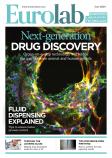"The delivery of genetic test results for a disease like cancer can trigger a range of emotions and can be more distressful than anticipated-- particularly when there's been no counselling and the results are ‘positive'," explains Beth N. Peshkin, MS, CGC, senior genetics counsellor at Lombardi Comprehensive Cancer Center, part of Georgetown University Medical Center, and educational director of the Jess and Mildred Fisher Center for Familial Cancer Research. "While in-person genetic counselling is ideal, it's not convenient for people who live in rural areas or don't have access to an academic centre."
According to Peshkin, genetic counselling and testing, particularly for adult onset conditions, is a trend that will continue to grow as additional genes are identified and as such testing diffuses into mainstream clinical care. Telephone counselling has been utilised with increased frequency despite a lack of data about its efficacy and concern about its use as a substitute for face-to-face contact with patients.
"In anticipation of this increased demand, it is imperative we find alternatives to traditional genetic susceptibility counselling and that we develop and evaluate these possible options now," Peshkin explains. "A successful alternative would be one that effectively delivers information but allows greater accessibility, such as telephone counselling."
To address these issues, Peshkin and her colleagues have launched a randomised clinical trial -the largest to date- at Lombardi to evaluate telephone genetic counselling versus in person (standard) genetic counseling among women at high risk of carrying a BRCA1/2 mutation. The study is outlined in the Spring edition of the journal Genetic Counseling posted online today.
"Many of us favour face-to-face counselling but the reality is the telephone may allow us to reach more people, more efficiently" says Peshkin. "It makes sense to develop interventions that parallel the traditional model while extending its reach and deliverability."
Peshkin points to the abundant clinical data on the epidemiology of BRCA1/2 and the efficacy of various management strategies. Also, evidence attests to the efficacy of traditional genetic counselling at increasing knowledge, prospectively improving the accuracy of perceived risk, and increasing the awareness of the risks and benefits of testing.
"Patients appear to be highly satisfied with the traditional format of comprehensive genetic counselling so a study among individuals undergoing BRCA1/2 testing is an ideal population on which to evaluate alternative models of counselling," Peshkin says.





